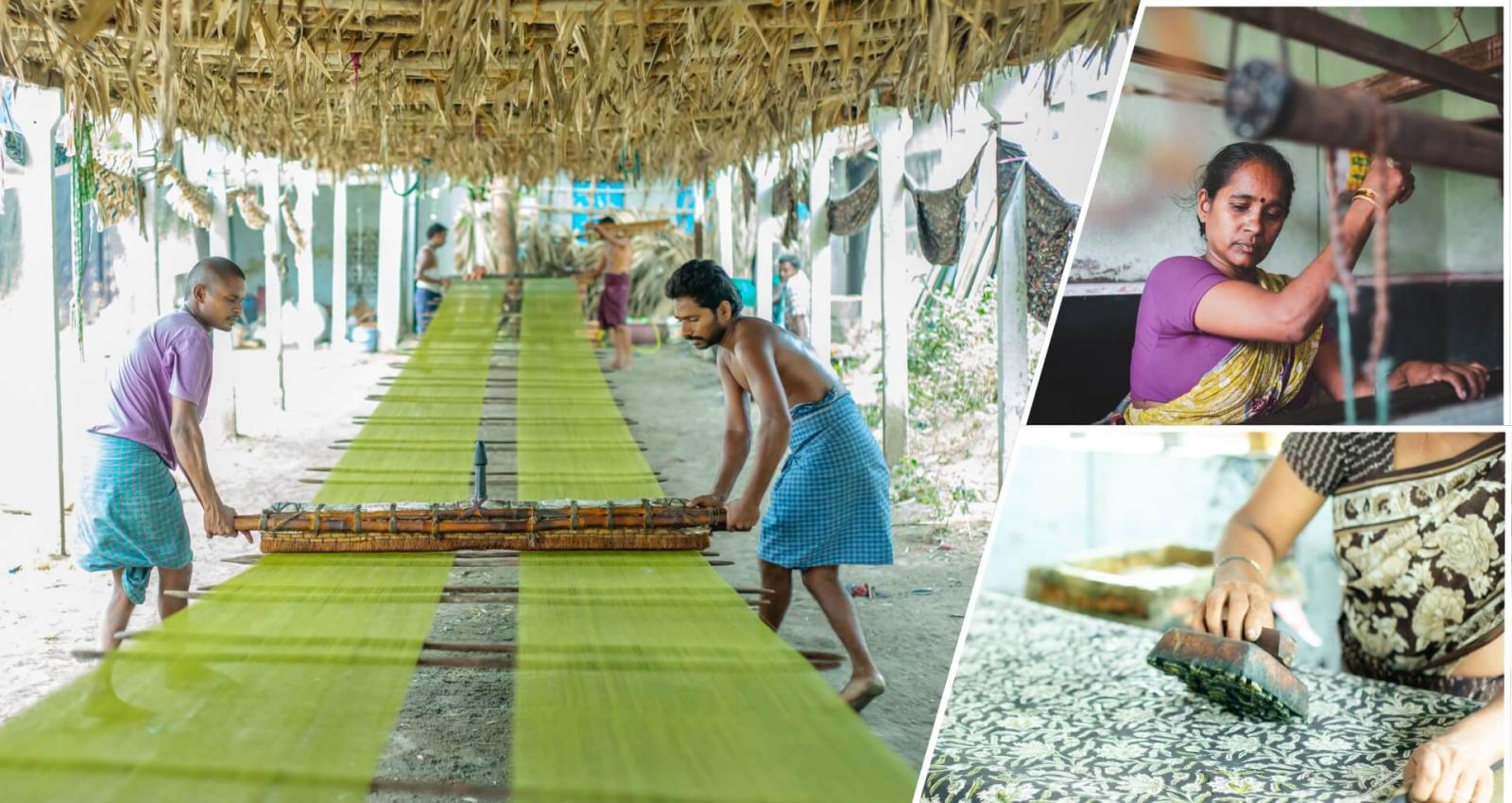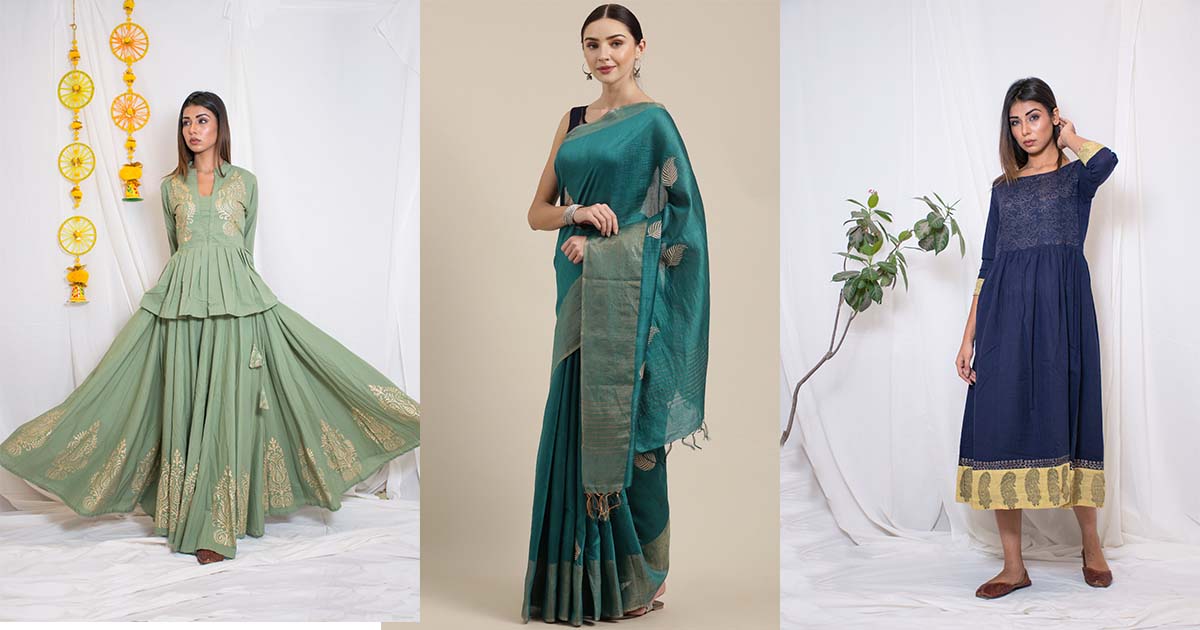Unveiling the Beauty of Handloom Fabrics: Exploring the Essence of Yes!poho

In a world where mass production dominates, handloom fabrics stand as a testament to the rich heritage and craftsmanship of artisans. These fabrics carry with them a legacy of tradition, culture, and sustainable practices. In this blog, we will delve into the fascinating world of handloom fabrics, shedding light on their significance, and specifically explore the fabric used by Yes!poho.
Understanding Handloom Fabrics: Handloom fabrics are textiles woven on traditional hand-operated looms, skillfully crafted by skilled artisans. These fabrics possess a unique charm, as they embody the labor of love and expertise poured into each piece. Handlooms have been used for centuries, and they continue to be a source of livelihood for numerous weaver communities across the globe.
The Artistry of Handloom Fabrics: Handloom fabrics are celebrated for their intricate designs, vibrant colors, and unmatched textures. Every thread is meticulously woven by hand, resulting in distinct patterns that reflect the cultural heritage of the region. Whether it''s the stunning ikat from India, the delicate batik from Indonesia, or the exquisite silk from Thailand, each handloom fabric tells a story of its origin.

Sustainability and Ethical Considerations: Handloom fabrics are synonymous with sustainability and ethical practices. Unlike mass-produced textiles, handlooms consume minimal energy and have a lower carbon footprint. They often employ natural fibers such as cotton, silk, linen, or wool, which are biodegradable and eco-friendly. Handloom weaving also provides employment opportunities for skilled artisans, preserving traditional techniques and supporting rural communities.
Yes!poho and Its Unique Fabric: Yes!poho is a brand that embraces the essence of handloom fabrics, celebrating their beauty and versatility. Yes!poho primarily uses a fabric known as "Yes!fabric," which is a blend of natural fibers, combining the elegance of cotton with the durability of linen. This fabric is specially handwoven by skilled artisans, resulting in a fabric that is breathable, soft, and comfortable to wear.

The Yes!poho Experience: Yes!poho commitment to sustainability extends beyond the fabric choice. The brand ensures fair wages and ethical working conditions for its weavers, contributing to the empowerment of artisan communities. By choosing Yes!poho, guests become a part of this sustainable fashion movement, supporting the preservation of traditional craftsmanship.
Versatility and Styling Options: Handloom fabrics, including Yes!fabric, offer a wide range of styling options. Whether it''s a traditional saree, a contemporary dress, a comfortable shirt, or an elegant kurta, handloom fabrics lend themselves beautifully to various apparel designs. The unique textures and vibrant colors make them a perfect choice for both casual and formal occasions, adding a touch of sophistication to any ensemble.

In Conclusion, Handloom fabrics are not just textiles; they are the embodiment of centuries-old traditions, skilled craftsmanship, and sustainable practices. Yes!poho use of handwoven fabric exemplifies their dedication to preserving heritage and creating fashion that is not only beautiful but also responsible. By embracing handloom fabrics, we can contribute to the revival of traditional art forms and support the livelihoods of talented artisans worldwide. So, let''s celebrate the allure of handlooms and embark on a sustainable fashion journey with Yes!poho.
#HandloomFabrics #SustainableFashion #ArtisanCraftsmanship #YespohoFabrics #TraditionalTextiles #EthicalFashion #HandwovenBeauty #HeritageWeaving #FashionRevolution #HandloomApparel

